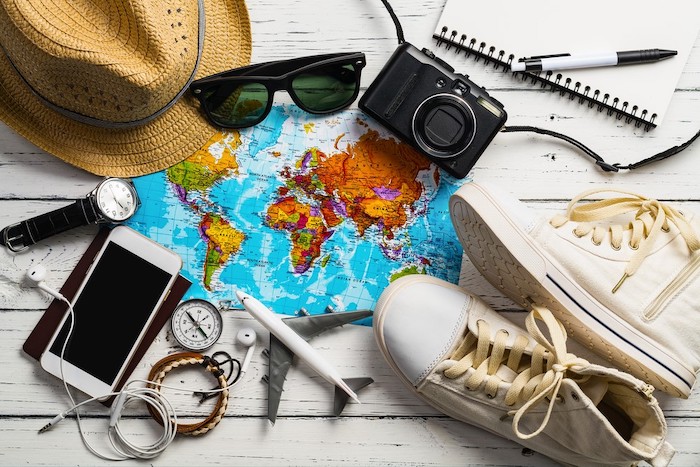Summer is coming and with it the main travel season. After the pandemic, travel has already gained momentum and many people feel they have to make up for lost time. According to PMG's 'Travel in 2024: The New Traveler' survey, people, including those from Generation Z, are travelling mainly for relaxation. Young people prefer spontaneity when travelling and are much more likely to try to integrate into the culture of the country they are visiting. How do domestic travel agencies perceive these travellers, how do they target them and how do they reach them?
Young people respond to social media trends
"The younger generation, often travelling as a couple and without children, prefers price over quality of service. They typically look for accommodation offering only breakfast, as opposed to families with children who prefer the 'all inclusive' concept. This is because they often take a variety of excursions during their stay. Another difference is that the younger generation is looking for more lively destinations that offer a wide range of activities both during the day and in the evening," Ondřej Žiška, Marketing Director of Student Agency holding and RegioJet, tells MediaGuru.
According to Kateřina Pavlíková, spokeswoman for Čedok, the young generation clearly emphasises experiences when travelling. "They respond a lot to trends from social networks and are also more interested in sustainability or more active holidays," she says, adding that this is one of the reasons why Čedok has upgraded its Activity Club for adults to include yoga, fitness and other sports. "Similarly, we have developed concepts for adventure holidays with activities such as scooters, quad biking, windsurfing or kite surfing. Together and with our guides and animators, who are mostly from the same age group, we are also targeting a new target group and form of holiday so that they simply enjoy travelling," he adds.
Among its customers, Blue Style travel agency is seeing a fast-growing group of younger travellers under the age of 25, who generally want to go to the seaside as a couple. "They mostly choose dates outside the main summer season and fly to exotic destinations," says Lucie Hasman, spokeswoman for the travel agency.
A trip through a travel agency is not just about lying on the beach in a resort
In its communication, Čedok wants to gradually demolish the myths that some young travellers perceive about tours with a travel agency. "That's why we are preparing new concepts and offering popular adults-only or party hotels, as well as promoting various adrenaline experiences, gastronomy, sports activities and other entertainment," Pavlíková says. The travel agency is also now focusing on boutique hotels, villas and apartments, outside the main tourist resorts, where car rental is also part of the accommodation package. "Every year we also open new destinations, both in exotic and closer locations, showing not only the so-called instafriendly places, but also locations that are now popular in connection with movies, series or other pop-culture trends," she adds.
Invia also fights myths about travel companies in its communication. According to Michal Bošela, who works as Head of Brand and Communication at the company, young people can be characterised mainly by their preference for travelling on their own with as little budget as possible. However, this attitude changes over time depending on the level of income, lack of time or starting a family. "Communication to younger generations plays an important role for us, but it has a different form and especially purpose compared to our classic customer. Our goal is to inspire the younger generation to travel and through these inspirations, whether destination, gastronomic or active, to show them that a trip through a travel agency is not just about lying in a resort on the beach and that it does not have to be more expensive at all. That is, we want to reach out to young people, keep in touch with them and 'educate' them a bit into our customers," says Bošela, adding that the aim of communication is not primarily to sell the tour, but to inspire and raise awareness of the Invia brand.
Young people prefer short, dynamic forms of communication
Unsurprisingly, travel agents and agencies are using social media to reach the younger generation, most often Instagram, TikTok or YouTube, where they deploy video content, travel quizzes, polls, competitions and collaboration with influencers. "Meme formats also work well for us," Bošela reveals, adding that the Invia brand communication also includes its blog or cooperation on projects such as DJ No.1 with Óčko. Čedok, on the other hand, has also involved artificial intelligence in its recent campaigns, which has been involved in the preparation of spots and key visuals.
Blue Style, which now uses the character of Cupid in its communications, is also targeting the younger generation with its above-the-line campaign. "The concise and clear message is directed at all potential customers, not excluding the young generation," explains Hasman. In addition, the travel agency prepares short programmes about travel in cooperation with TV and radio operators. "For the fifth year, we are also the title partner of the Blue Style Prima Fest family festival, which will take place on 12-13 July 2024 in the Šikland theme park in Zvoly nad Pernštejnem," he adds.
According to Ondřej Žiška, the younger generation generally prefers short, dynamic and visually rich forms of communication, while older consumers appreciate a more traditional and detailed approach, including long texts and detailed descriptions. Student Agency and RegioJet often use personalised offers in their communications to match the specific interests and preferences of the age group. In addition to social media, it works with display advertising, PPC, emailing, search engine optimization, and doesn't neglect offline channels such as print or outdoor advertising. "This diversity allows us to reach a wide range of customers and tailor our messages to the specific needs of each group," adds Žiška.
Source: mediaguru.cz

